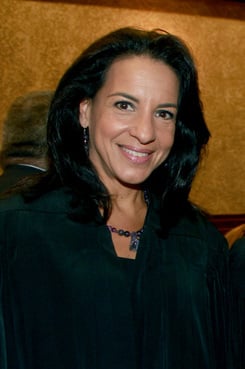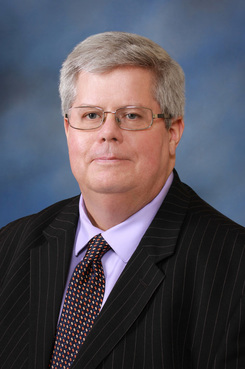Former Chief Justice Encourages Judges to Get Off Facebook
"For newly elected or appointed judges who have existing Facebook accounts, I encourage deactivation of those accounts," Justice Jorge Labarga wrote in a Florida Supreme Court decision that ruled Facebook friendships between attorneys and judges aren't enough for disqualification.
November 16, 2018 at 04:13 PM
7 minute read
 Florida Supreme Court Justice Jorge Labarga. Photo: J. Albert Diaz/ALM.
Florida Supreme Court Justice Jorge Labarga. Photo: J. Albert Diaz/ALM.
The Florida Supreme Court released a ruling Thursday dissecting the nature of Facebook friendships and whether a judge and an attorney could connect on social media — and Justice Jorge Labarga didn't mince his words.
Labarga sided with the majority, deciding that a Facebook friendship isn't enough to warrant recusal or disqualification.
But Florida's former chief justice is not a fan of social media.
“For newly elected or appointed judges who have existing Facebook accounts, I encourage deactivation of those accounts,” Labarga wrote.
Labarga argued that because Facebook is home to a spectrum of relationships, from close friends to strangers, the best way to avoid problems is to dodge social media altogether.
In a narrow 4-3 opinion, the justices ruled that a circuit court judge didn't have to recuse herself because of a social media connection to one of the attorneys. The decision left experts on legal ethics feeling encouraged.
 Miami-Dade Circuit Judge Beatrice Butchko. Photo: J. Albert Diaz/ALM.
Miami-Dade Circuit Judge Beatrice Butchko. Photo: J. Albert Diaz/ALM.“The opinion embraces the realities of our time and acknowledges that judges live among us,” said Jan L. Jacobowitz, legal ethics expert and professor of law at the University of Miami School of Law.
The case stemmed from the Third District Court of Appeal, which ruled that there was no need to disqualify Miami-Dade County Circuit Judge Beatrice Butchko for being Facebook friends with Israel Reyes, an attorney on a case before her.
The Law Office of Herssein & Herssein in North Miami had sought to remove Butchko from presiding over a legal battle with its then-client, U.S. Automobile Association. It argued that Reyes, the judge's Facebook friend, represented an association official in the case. Butchko ultimately had to recuse herself due to binding precedent.
Related story: Florida Supreme Court Justices Try to Sort Out Facebook Friends
Passman Jones shareholder John G. Browning has been a trial lawyer in Texas for more than 28 years and literally wrote the book on legal ethics and social media, along with Jacobowitz.
“There's nothing magical or special about social media,” Browning said. ”What has to be examined for evaluating whether or not disqualification or recusal is necessary is the relationship itself, not where it stems from.”
Browning felt Labarga's outlook was unrealistic, particularly when most jurisdictions elect judges rather than appoint them, and many courts use websites and social media to reach the public.
“The reality is that we have a judiciary nationwide that, increasingly, are coming from the ranks of younger lawyers, who have greater comfort levels with using social media and greater familiarity with it,” Browning said.
The majority acknowledged that “it is regularly the case that Facebook 'friendships' are more casual and less permanent than traditional friendships.”
Chief Justice Charles Canady wrote the decision, with Justices Ricky Polston, Labarga and Alan Lawson concurring.
Justice Barbara Pariente wrote for the minority, which argued that Facebook friendships create the appearance of impropriety. Justices R. Fred Lewis and Peggy Quince concurred.
The court looked for answers outside of Florida, peppering its decision with citations from a variety of judicial ethics opinions and cases around the country, including Kentucky, Tennessee, Massachusetts and Connecticut.
The Draconian state
 John G. Browning of Passman & Jones in Texas. Courtesy photo.
John G. Browning of Passman & Jones in Texas. Courtesy photo.Browning, whose work is often referenced in similar judicial ethics cases, said he felt somewhat vindicated that Florida courts finally threw support behind an argument he and others have been making for several years.
“It's a belated but welcome recognition of the fact that relationships and connections on Facebook are often very fleeting, very transitory,” Browning said.
In Browning's mind, Florida has been the most draconian of all states when it comes to judges' use of social media — likely because of a series of opinions by the Florida Judicial Ethics Advisory Commission, released in 2009, which consistently frowned on the idea.
According to Browning, the Hurssein decision was the court's opportunity to finally address the cyber-elephant in the room, almost a decade after it first appeared.
“They simply couldn't avoid the issue anymore,” Browning said.
Jacobowitz felt Florida deserved some credit for being early out of the gate with its JEAC opinions, but noted that the social media hadn't quite reached its pinnacle at that point.
 Jan Jacobowitz, a professor of law at the University of Miami School of Law. Courtesy photo.
Jan Jacobowitz, a professor of law at the University of Miami School of Law. Courtesy photo.“Florida perhaps became stuck in its own paradigm,” Jacobowitz said. “But there are more than 1 billion people on Facebook. In the better part of a decade, social media has exploded.”
The dissenting justices stressed the appearance of impropriety and relied heavily on the 2009 JEAC opinions, calling for restrictions on social media for judges.
But lawyer-judge friendships on Facebook aren't necessarily significant, according to Jacobowitz, who pointed out that the usual rules of judicial conduct still apply.
“The opinion doesn't say, 'Sure, be friends with anybody and don't even think about it.' It still reinforces that a judge needs to consider their relationship when parties appear before them,” Jacobowitz said. “Was the person a college roommate or was this someone they just see in passing at their child's school?”
Jacobowitz's advice? Keep up to speed with social media and how it functions.
“The judges who have run into problems on social media are often the ones that don't understand how it works or who's seeing their posts,” Jacobowitz said.
In 2015, the Minnesota Board on Judicial Standards sanctioned Judge Edward Bearse for posting about his cases on Facebook. Bearse had served on the bench for 32 years before becoming a senior judge in 2006 and had never been disciplined.
If judges decide not to partake in social media, that's their prerogative. But that won't stop Facebook from popping up in court in the form of evidence or issues of jurisdiction, Jacobowitz pointed out, so it doesn't hurt to be familiar.
Once upon a time, it was weird for lawyers to be on social media.
“When social media first arrived, a lot of lawyers put their head in the sand and said, 'I'm not having anything to do with social media because that seems to be a best practice,” Jacobowitz said. “As it turns out, ignoring social media is not an effective way to practice law any longer.”
Read the full court opinion:
Like it or lump it, welcome to the digital age.
“I always preach caution for both attorneys and judges in their use of social media, because the landscape is rife with examples of both judges and lawyers who have gotten into ethical hot water for misusing social media,” Browning said. “But those concerns would be present in any form of communication that the judge engages in.”
Related story:
Tweeting From the Bench: Judges Discuss Social Media Pitfalls
This content has been archived. It is available through our partners, LexisNexis® and Bloomberg Law.
To view this content, please continue to their sites.
Not a Lexis Subscriber?
Subscribe Now
Not a Bloomberg Law Subscriber?
Subscribe Now
NOT FOR REPRINT
© 2025 ALM Global, LLC, All Rights Reserved. Request academic re-use from www.copyright.com. All other uses, submit a request to [email protected]. For more information visit Asset & Logo Licensing.
You Might Like
View All
Meta agrees to pay $25 million to settle lawsuit from Trump after Jan. 6 suspension
4 minute read
Executive Assistant, Alleging Pregnancy Discrimination and Retaliation, Sues Florida Healthcare Entrepreneur
3 minute read
Trending Stories
Who Got The Work
J. Brugh Lower of Gibbons has entered an appearance for industrial equipment supplier Devco Corporation in a pending trademark infringement lawsuit. The suit, accusing the defendant of selling knock-off Graco products, was filed Dec. 18 in New Jersey District Court by Rivkin Radler on behalf of Graco Inc. and Graco Minnesota. The case, assigned to U.S. District Judge Zahid N. Quraishi, is 3:24-cv-11294, Graco Inc. et al v. Devco Corporation.
Who Got The Work
Rebecca Maller-Stein and Kent A. Yalowitz of Arnold & Porter Kaye Scholer have entered their appearances for Hanaco Venture Capital and its executives, Lior Prosor and David Frankel, in a pending securities lawsuit. The action, filed on Dec. 24 in New York Southern District Court by Zell, Aron & Co. on behalf of Goldeneye Advisors, accuses the defendants of negligently and fraudulently managing the plaintiff's $1 million investment. The case, assigned to U.S. District Judge Vernon S. Broderick, is 1:24-cv-09918, Goldeneye Advisors, LLC v. Hanaco Venture Capital, Ltd. et al.
Who Got The Work
Attorneys from A&O Shearman has stepped in as defense counsel for Toronto-Dominion Bank and other defendants in a pending securities class action. The suit, filed Dec. 11 in New York Southern District Court by Bleichmar Fonti & Auld, accuses the defendants of concealing the bank's 'pervasive' deficiencies in regards to its compliance with the Bank Secrecy Act and the quality of its anti-money laundering controls. The case, assigned to U.S. District Judge Arun Subramanian, is 1:24-cv-09445, Gonzalez v. The Toronto-Dominion Bank et al.
Who Got The Work
Crown Castle International, a Pennsylvania company providing shared communications infrastructure, has turned to Luke D. Wolf of Gordon Rees Scully Mansukhani to fend off a pending breach-of-contract lawsuit. The court action, filed Nov. 25 in Michigan Eastern District Court by Hooper Hathaway PC on behalf of The Town Residences LLC, accuses Crown Castle of failing to transfer approximately $30,000 in utility payments from T-Mobile in breach of a roof-top lease and assignment agreement. The case, assigned to U.S. District Judge Susan K. Declercq, is 2:24-cv-13131, The Town Residences LLC v. T-Mobile US, Inc. et al.
Who Got The Work
Wilfred P. Coronato and Daniel M. Schwartz of McCarter & English have stepped in as defense counsel to Electrolux Home Products Inc. in a pending product liability lawsuit. The court action, filed Nov. 26 in New York Eastern District Court by Poulos Lopiccolo PC and Nagel Rice LLP on behalf of David Stern, alleges that the defendant's refrigerators’ drawers and shelving repeatedly break and fall apart within months after purchase. The case, assigned to U.S. District Judge Joan M. Azrack, is 2:24-cv-08204, Stern v. Electrolux Home Products, Inc.
Featured Firms
Law Offices of Gary Martin Hays & Associates, P.C.
(470) 294-1674
Law Offices of Mark E. Salomone
(857) 444-6468
Smith & Hassler
(713) 739-1250







